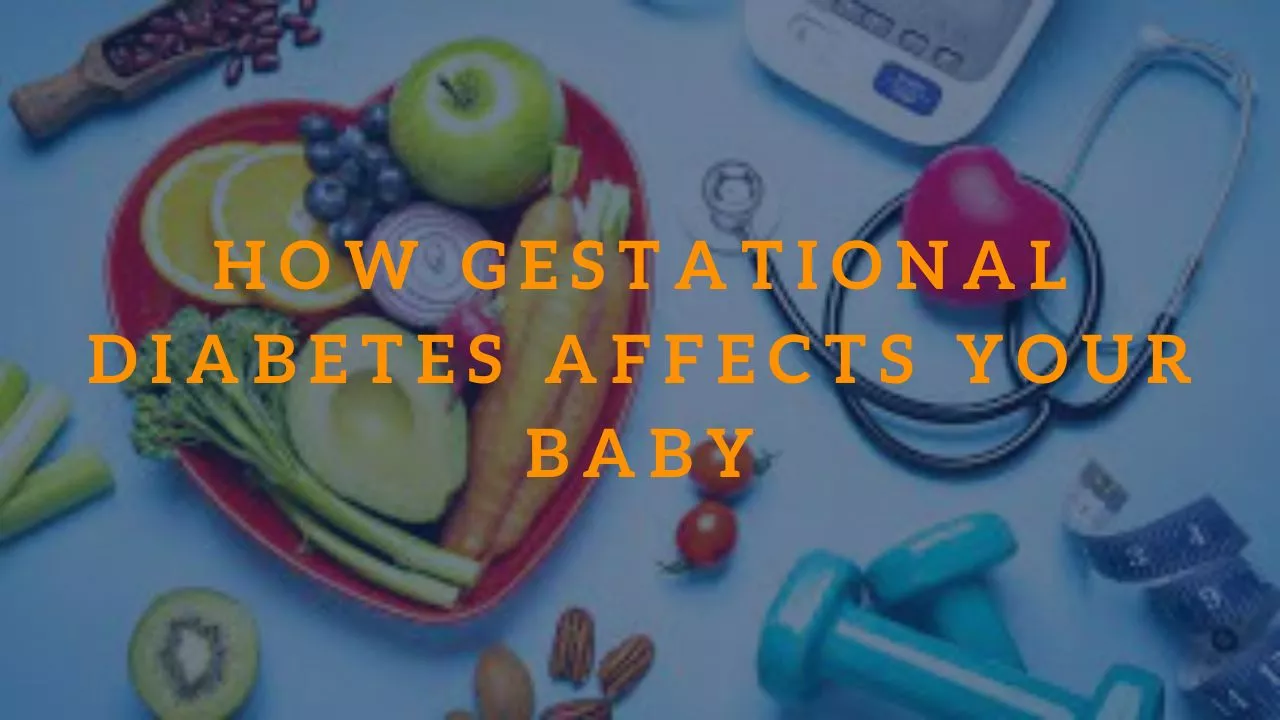Hello 1-GSM Visitors! If you’re pregnant or planning to conceive, it’s essential to understand how gestational diabetes can affect your baby’s health. Gestational diabetes is a type of diabetes that occurs during pregnancy and affects around 10% of all pregnant women. It’s important to note that gestational diabetes doesn’t mean you’ll have diabetes for life, but it can have significant consequences for your baby’s health. Here’s everything you need to know about how gestational diabetes can affect your baby.

Increased Risk of High Birth Weight
Gestational diabetes can lead to an increased risk of high birth weight, which is also known as macrosomia. This means that your baby will weigh more than 8 pounds, 13 ounces at birth. High birth weight can cause complications during delivery, such as shoulder dystocia, which is when your baby’s shoulder gets stuck behind your pelvic bone during delivery. This can cause nerve damage, which can lead to permanent disability.
Increased Risk of Low Blood Sugar
Babies born to mothers with gestational diabetes are at an increased risk of low blood sugar, also known as hypoglycemia. This is because their bodies are producing more insulin to manage the high levels of sugar in their mother’s blood. This increase in insulin production can cause their blood sugar levels to drop too low after birth, which can lead to seizures, brain damage, and other complications.
Increased Risk of Jaundice
Babies born to mothers with gestational diabetes are also at an increased risk of developing jaundice. Jaundice is a condition that causes the skin and whites of the eyes to turn yellow. It’s caused by a buildup of bilirubin, a waste product that’s produced when red blood cells break down. Babies with jaundice may need to be treated with phototherapy, which involves exposing their skin to a special type of light that helps break down the bilirubin in their blood.
Increased Risk of Respiratory Distress Syndrome
Babies born to mothers with gestational diabetes are at an increased risk of developing respiratory distress syndrome (RDS). RDS is a condition that affects premature babies and causes difficulty breathing. It’s caused by a lack of surfactant, a substance that helps keep the lungs inflated. Babies with RDS may need to be treated with oxygen therapy, and in severe cases, they may need to be placed on a ventilator.
Increased Risk of Type 2 Diabetes
Babies born to mothers with gestational diabetes are also at an increased risk of developing type 2 diabetes later in life. This is because their bodies have been exposed to high levels of sugar in the womb, which can cause their cells to become insulin resistant. Insulin resistance is a condition that makes it harder for your cells to absorb glucose, which can lead to high blood sugar levels and eventually, type 2 diabetes.
Increased Risk of Obesity and Metabolic Syndrome
Babies born to mothers with gestational diabetes are also at an increased risk of developing obesity and metabolic syndrome later in life. Metabolic syndrome is a group of conditions, including high blood pressure, high blood sugar levels, and abnormal cholesterol levels, that increase your risk of heart disease, stroke, and other health problems. Obesity and metabolic syndrome are both linked to insulin resistance, which can be caused by exposure to high levels of sugar in the womb.
Prevention and Treatment
The good news is that gestational diabetes can be prevented and treated with lifestyle changes, such as a healthy diet and regular exercise. If you’re pregnant, it’s important to get regular prenatal care and to follow your healthcare provider’s recommendations for managing your gestational diabetes. This may include monitoring your blood sugar levels, taking medication, and making dietary changes.
Conclusion
Gestational diabetes can have significant consequences for your baby’s health, including an increased risk of high birth weight, low blood sugar, jaundice, respiratory distress syndrome, type 2 diabetes, obesity, and metabolic syndrome. However, with proper management and treatment, you can reduce the risk of these complications and ensure the best possible outcomes for your baby. If you’re pregnant or planning to conceive, talk to your healthcare provider about how to manage your gestational diabetes and give your baby the best possible start in life.
See You Again at Our Other Interesting Article!
